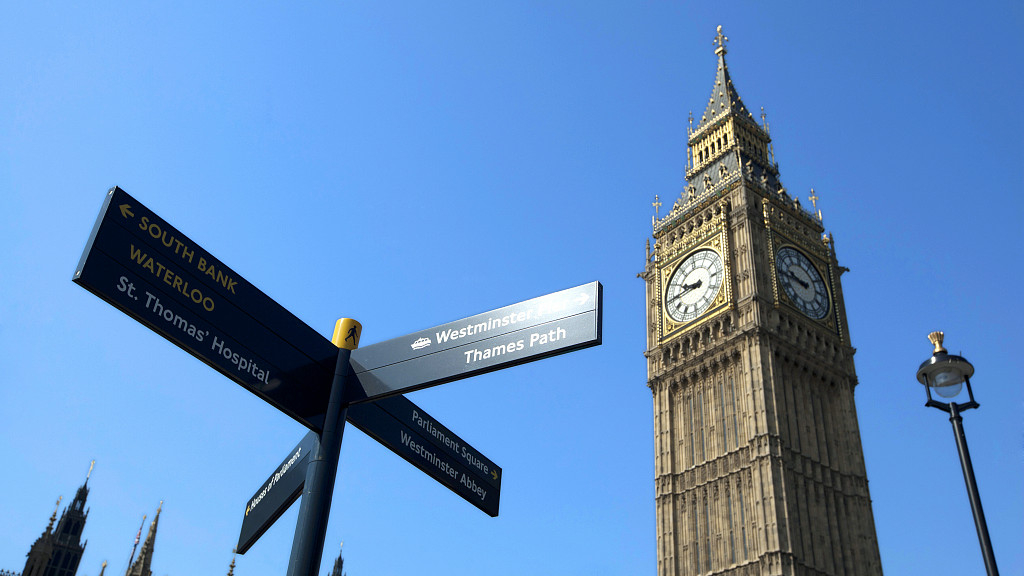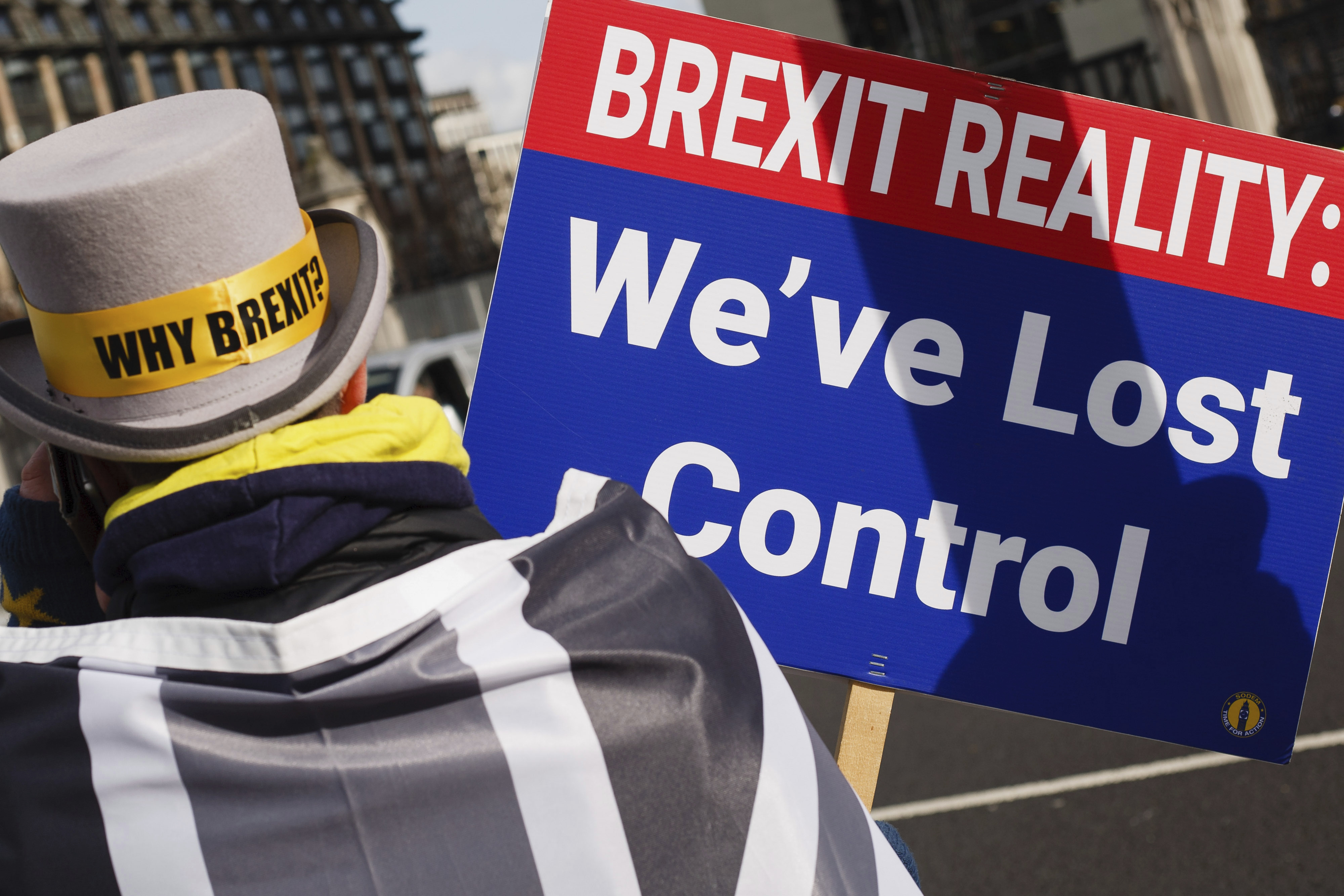
Editor's note: Mike Cormack is a writer, editor and reviewer mostly focusing on China, where he lived from 2007 to 2014. He edited Agenda Beijing and is a regular book reviewer for the South China Morning Post. The article reflects the author's opinions, and not necessarily the views of CGTN.
British governance had, until recently, a strong international reputation, with high marks for the quality, absence of corruption, and non-partisan character of its judiciary, civil service and broader institutions. (Although the narrow social basis of the UK's public life make nepotism and cronyism regular features).
The former Conservative minister Enoch Powell put it with huge chutzpah: "Compare the story of Britain in the 20th century with that of her supposedly successful competitors, France or Germany or Japan. They made a ghastly hash of their countries, alongside which Britain [...] came relatively unscathed through immense transitions and vicissitudes: we defeated our aggressors, we preserved our constitution, and we humbugged our way with self-satisfaction through everything. I say: beat that if you can."
Perhaps that attitude could stand in the 20th century. But the vicissitudes of the 21st have been rather more exacting, and shown the British state in a more parlous situation. Historically, most nations had their weaknesses demonstrated in what author Correlli Barnett called "the audit of war," but for the UK its Waterloo was not in the field of battle but in Brexit.
Here the nation turned against itself, with politicians lying to the electorate about the ease of life outside the EU, and judges and civil servants howled down as traitors and enemies of the people when they failed to deliver those easy gains. But worse than that: it turned against experience, expertise, and knowledge. It is little wonder that the poise, self-assurance and know-how of British institutions have crumbled under such harsh exposure.
Thus Britain's fabled reputation for diplomacy is not what it was. Despite Eurosceptic disdain for the EU, the UK came out ahead on many of its treaties. The Single Market was a British initiative. The Maastricht Treaty allowed the UK to remain outside the Single Currency and the Social Chapter. The eastward expansion was also a British idea, ushering in central and eastern European states from Bulgaria on the Black Sea to Estonia in the Baltic.
Yet while the UK's exit deal from the EU was as good as could reasonably be hoped, the British parliament was so blinded by an inability to contemplate the reality that it rejected it three times, even though the alternative would have been a catastrophic no-deal Brexit.

Anti-Brexit activist Steve Bray demonstrates with placards outside the Houses of Parliament in London, February 12, 2020. /AP
Anti-Brexit activist Steve Bray demonstrates with placards outside the Houses of Parliament in London, February 12, 2020. /AP
Now the UK and the EU have only until the end of December to strike a trading deal as they move forward, as the current status-quo terms expire then. With the coronavirus pandemic disrupting all trade and diplomacy, and the one-year time limit already perilously tight, perhaps this was the time to seek an extension?
Not a bit of it. David Frost, Britain's chief negotiator, said: "Extending would simply prolong negotiations, create even more uncertainty, leave us liable to pay more to the EU in future, and keep us bound by evolving EU laws at a time when we need to control our own affairs." The prime minister's spokesman said: "We will not ask to extend the transition period, and if the EU asks we will say no." It's as though they think if they say something often enough, it will come true. Magical thinking might work in fiction. It does not work in the cold harsh reality of trade talks, their percentages and extensive clauses.
But worst of all, European Trade Commissioner Phil Hogan has noted that Britain is not showing any particular urgency in conducting talks. "Despite the urgency and enormity of the negotiating challenge, I am afraid we are only making very slow progress in the Brexit negotiations. There is no real sign that our British friends are approaching the negotiations with a plan to succeed," he said. He added: "I think that the United Kingdom politicians and government have certainly decided that COVID-19 is going to be blamed for all the fallout from Brexit and my perception of it is they don't want to drag the negotiations out into 2021 because they can effectively blame COVID-19 for everything."
It was noted of previous Prime Minister David Cameron that he approached matters like a student needing to turn in an essay the next day. Ill-prepared, panicky and nonstrategic, he relied on his poise and fluency to see him through – an approach that generally worked day-to-day, though not when facing major issues of great complexity, as with the UK's relationship with the EU. But Boris Johnson's method is even worse. It is that of the student who turns up at an exam without having studied, hoping they can flannel their way through, with excuses at the ready in case they are found out. (His approach to the coronavirus has been an exact case in point).
At best, Johnson will have noted that concessions most often arrive in the final hours of negotiations. But he seems to have forgotten that they usually come from the partner who most needs a deal, and that this is very obviously the UK. He is thus leaving the UK to turn up empty-handed and clownishly unready to negotiate its most important trading relationship, and leaving the British government's reputation for competence in tatters – or even more so.
(If you want to contribute and have specific expertise, please contact us at opinions@cgtn.com.)